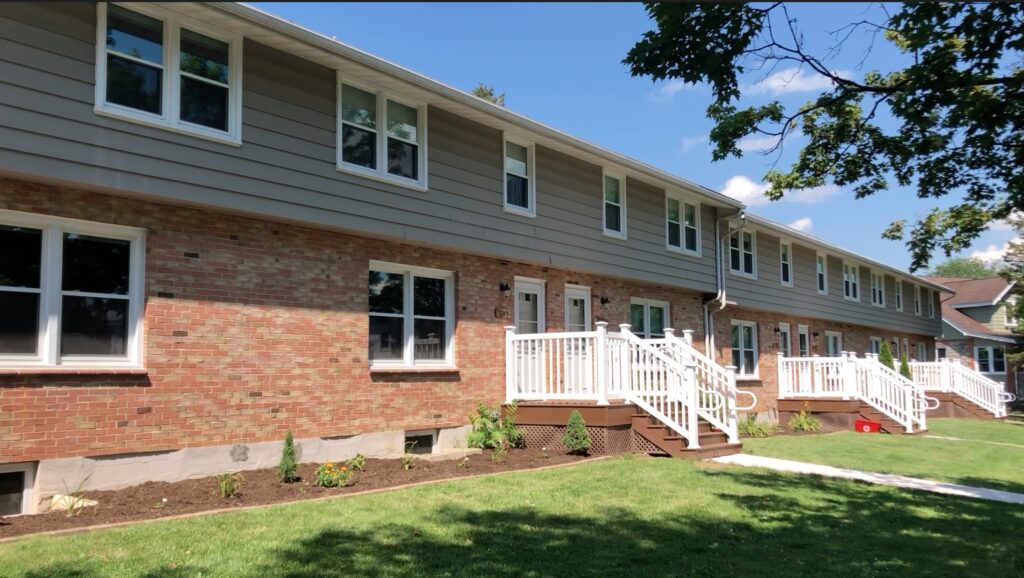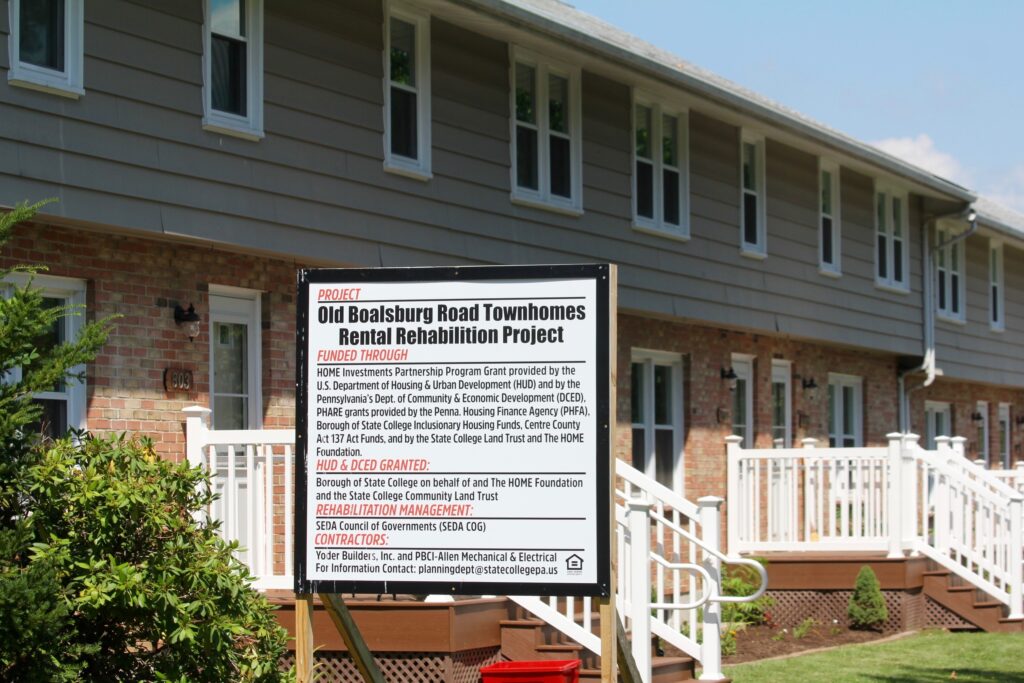Much work remains to be done, but progress is being made addressing affordable housing issues in communities like State College, Patrick Harker, president and CEO of the Federal Reserve Bank of Philadelphia, said during a visit to the borough on Thursday.
Harker stopped in State College to talk with the local organizations that participated in the Philly Fed’s Reinventing Our Communities (ROC) Cohort Program, an initiative founded in 2020 and currently being conducted in 15 states to bring cross-sector leaders together to identify opportunities to strengthen local economies and increase opportunity.
The initiative is about providing a mechanism for community members to solve the problems they know best, and collaborate with other communities facing similar situations.
“We’re not going to solve people’s problems,” Harker said. “Who knows their problems? The people here, and they are the people that are going to solve it. We just want to provide the vehicle by which people can have that conversation and make the connections that they ordinarily wouldn’t make to come up with ideas that they can use back in their local communities.”
State College Borough, its nonprofit community housing partners he HOME Foundation and State College Community Land Trust, the Hamer Center for Community Design at Penn State, Pennsylvania Housing Research Center and PNC Bank participated in the eight-month program, collaborating with groups from other communities with a focus on affordable housing solutions.
After meeting with community leaders working on affordable housing, Harker toured the Old Boalsburg Road Townhomes, a recently completed joint project by the HOME Foundation and State College Community Land Trust (SCCLT) with support from local, state and federal funding to create affordable rental homes for income-qualified individuals and families.
“I was here way before the pandemic and I heard from the community then affordable housing was an issue,” Harker said while speaking outside the townhomes. “It’s still an issue today, but there’s progress being made. You can see that right here behind us.”
The townhomes at 803-817 Old Boalsburg Road were renovated with new kitchens and bathrooms and energy-efficient heating and cooling systems, hot water heaters, windows and appliances. Five of the homes have been rented since the project was completed in the spring and three have applications in process.
While the HOME Foundation and SCCLT were working on the process to acquire the property in 2020, they participated in the ROC Cohort Program. The initiative played a particularly important role in the energy efficiency and emissions reduction components of the renovations, according to Morgan Wasikonis, executive director of the HOME Foundation.
“We have been looking at trying to make the overall cost and the overall housing burden for the households that live in them lower and make it more affordable,” Wasikonis said. “During the process of acquiring this property we also went through the ROC Cohort experience and I think it solidified that we really need to find a way to make these homes energy efficient.”

Wasikonis added that one of the most effective parts of the ROC program was working with other communities, more than 20 from Pennsylvania and surrounding states focusing on a variety of issues.
“We started to build collaborations, share information, get ideas about different ways of doing this kind of work,” she said. “Each cohort kind of had their own focus. Ours was on the energy side of it. But those cohorts liked hearing about the work we’re doing and we liked hearing about the work they’re doing. It’s worked out really well.”
The HOME Foundation and SCCLT both offer first-time homebuyer programs under different models and both have made energy efficiency a key part of those as well.
During his visit, Harker spoke with the HOME Foundation’s most recent first-time homebuyer, who told him the low energy costs made her new house truly affordable after previously paying hundreds of dollars a month.
“Making a home energy-efficient is crucial,” Harker said. “A house isn’t affordable if your energy bill is hundreds and hundreds and hundreds of dollars a month.”
The Federal Reserve System’s involvement in issues like affordable housing dates back to the late 1970s when the federal Community Reinvestment Act was passed to encourage banks to invest in the communities they serve, including low- to moderate-income areas, Harker said.
“Well, banks asked the question back in the 1970s, ‘What do we reinvest in?’” Harker explained. “That led to a whole research effort throughout the Federal Reserve System on community development, looking at what matters for low- to moderate-income communities, what makes a difference. A big part of economic development is housing. So a lot of work we’ve done over many decades is on understanding low/moderate-income housing and the needs for that and how to supply it. That’s where this all comes from.”
After the cohort program, Wasikonis and SCCLT Executive Director Colleen Ritter had the opportunity to attend the Cleveland Fed’s Policy Summit, a regional conference on challenges facing low- and moderate-income communities.
“They had a whole one-day opportunity for the three different ROC cohort groups that had come in in 2020, 2021 and 2022 to come together and share ideas, and that was really powerful,” Wasikonis said. “I think we see the opportunity to continue that kind of collaboration in the future. I feel like the Fed is very committed to doing that.”
State College community members “have done tremendous work” in their efforts to address the long-running and ongoing issue of affordable housing, Harker said, and he’s looking forward to seeing future endeavors.
“I think if you talk to the people here they would tell you ‘made a lot of progress, a lot more to do,’” he said. “I’m excited to see what they’ve done so far. I’m equally excited to see what they’re going to be doing.”




